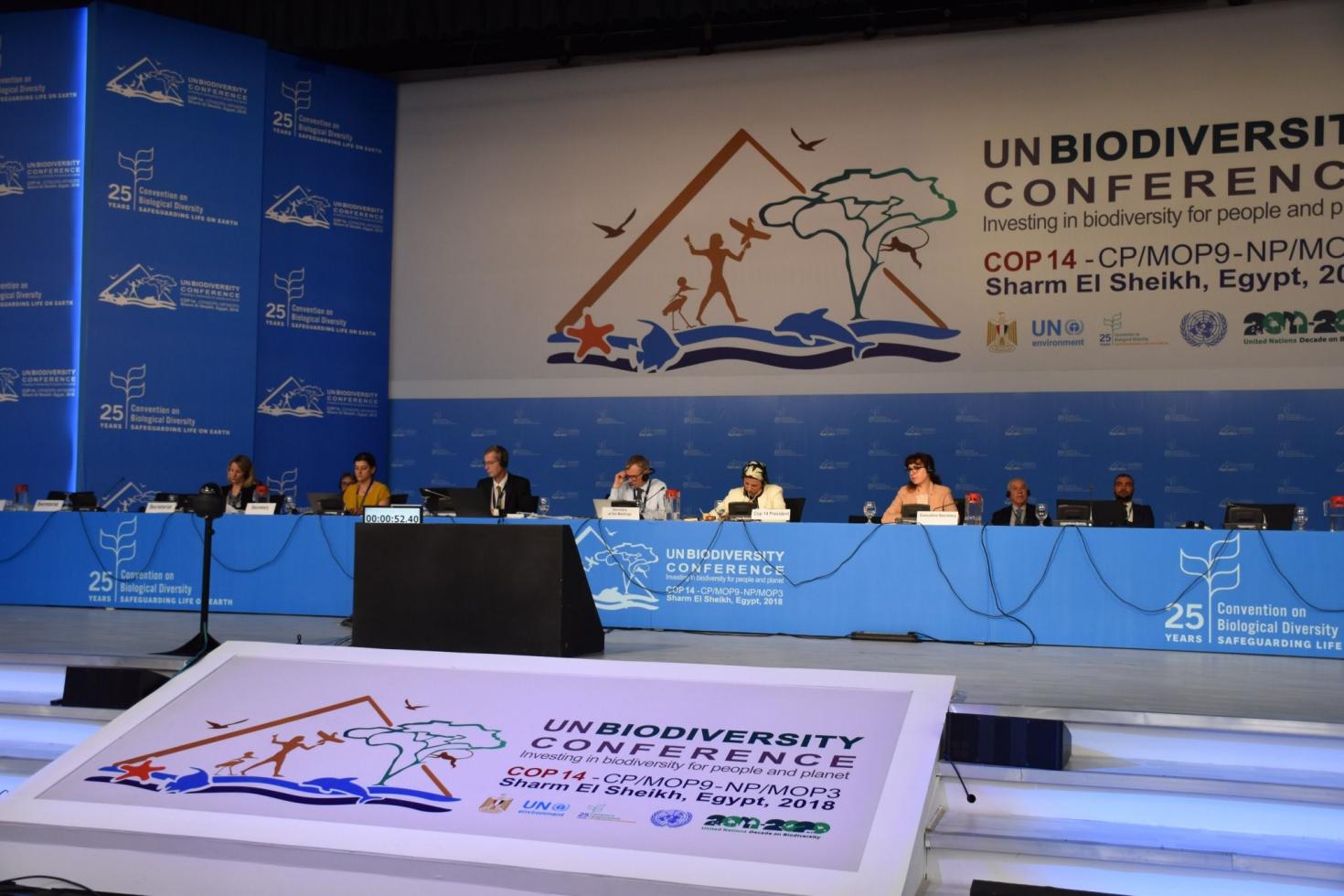The announcement was made during the ninth Conference of the Parties (COP/MOP-9) in Egypt, during which the Institute highlighted the critical role that technologies play in consolidating the sustainable, comprehensive development of humanity, which is currently undergoing multiple, vertiginous changes.

San Jose, 22 November 2018 (IICA). During the ninth Conference of the Parties (COP/MOP-9) in the city of Sharm El-Sheikh, Egypt, the Inter-American Institute for Cooperation on Agriculture (IICA) announced that it would broaden support for its Member States in matters related to the sharing of information on biotechnology and biosafety.
During the event, Pedro Rocha, IICA Specialist in Biotechnology and Biosafety, described the preparatory work that IICA and its 34 Member States have been conducting over the past 15 years in this field. The Institute recognizes the importance of biodiversity and fostering its coordination with technology in order to drive the efficient and sustainable development of agriculture and, in turn, contribute to the fulfillment of the Sustainable Development Goals.
“IICA works closely with the ministries of agriculture, the environment and health of the countries that request support in these areas. It has also carried out actions focused on institutional assistance and efficient communication aimed at improving and supporting capacity building for the application of the Cartagena Protocol on Biosafety to the Convention on Biological Diversity, as well as improved use of its facilitation mechanisms,” stated the specialist.
Rocha noted that, in order to continue supplying countries with the knowledge they require to make decisions related to biotechnology and biosafety, IICA will continue to generate opportunities for discussion and dialogue that are strictly based on available technical and scientific information, while continuing to defend the idea that agriculture has achieved progress thanks to its interaction with technology.
The specialist added that agriculture is a vital activity that guarantees sustenance for humankind. He also explained that, in order to address some of its challenges, it is necessary to apply technological alternatives as well as adopt new technologies, which are characterized by greater precision, inclusion, transparency and safety.
“It is clear that technologies solve problems; however, they are not the solution to all problems. They are not perfect either; they involve risks. At present, technologies are critical to consolidating the sustainable and comprehensive development of humanity, which is currently undergoing multiple, vertiginous changes,” stated Rocha.
IICA’s work in this area forms part of the technical cooperation actions that the international organization is carrying out as part of its Bioeconomy and Production Development program.
At the event, IICA also expressed its support for the development of a proposal for a long-term strategic framework for capacity building beyond 2020, presented by the Secretariat of the COP/MOP Subsidiary Body.
About COP/MOP-9
COP/MOP-9 is being held within the framework of the 2018 UN Biodiversity Conference, which calls on decision makers from more than 190 countries to step up efforts to halt biodiversity loss and protect the ecosystems that support food and water security as well as the health for billions of people.
It also facilitates dialogue among country delegates, providing participants with the opportunity to hold in-depth discussions and improve their understanding of matters related to the Cartagena Protocol on Biosafety to the Convention on Biological Diversity.
More information:
Pedro Rocha, IICA Specialist in Biotechnology and Biosafety











